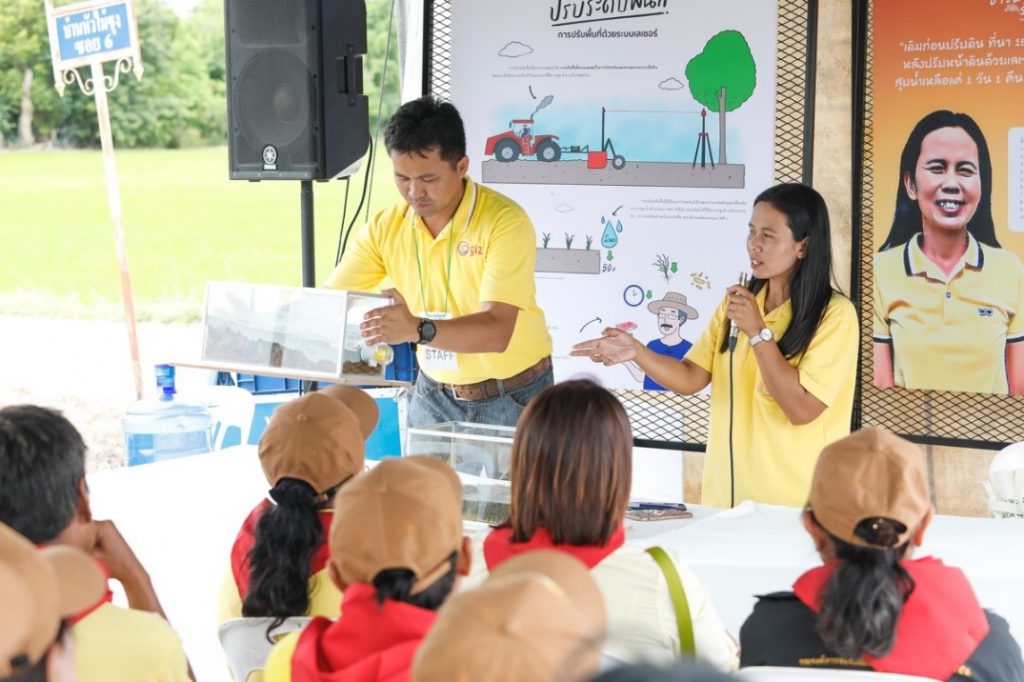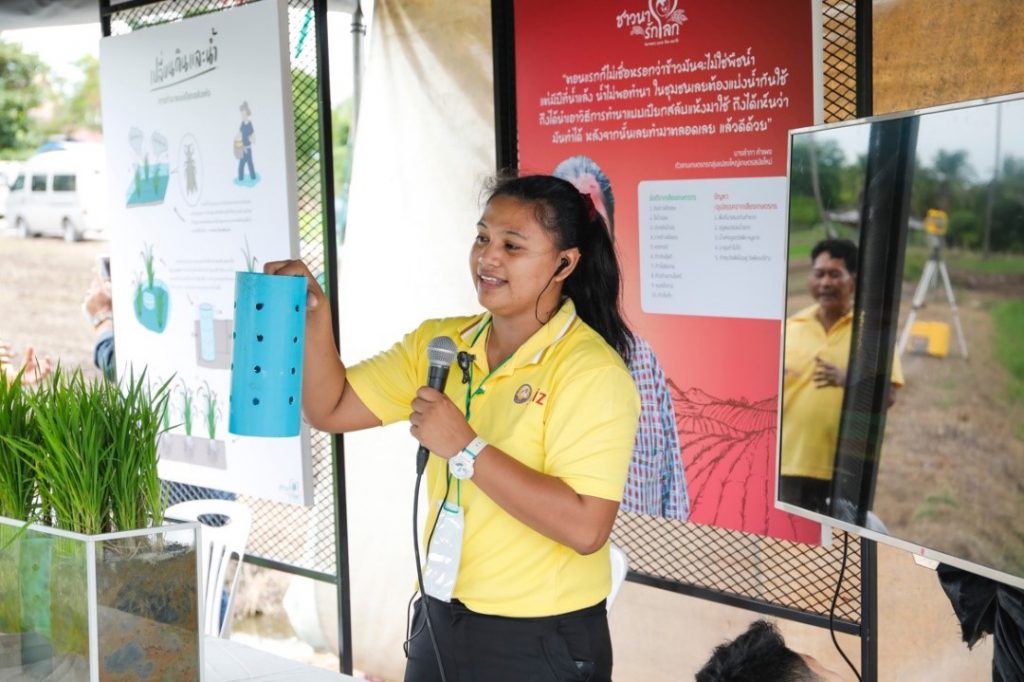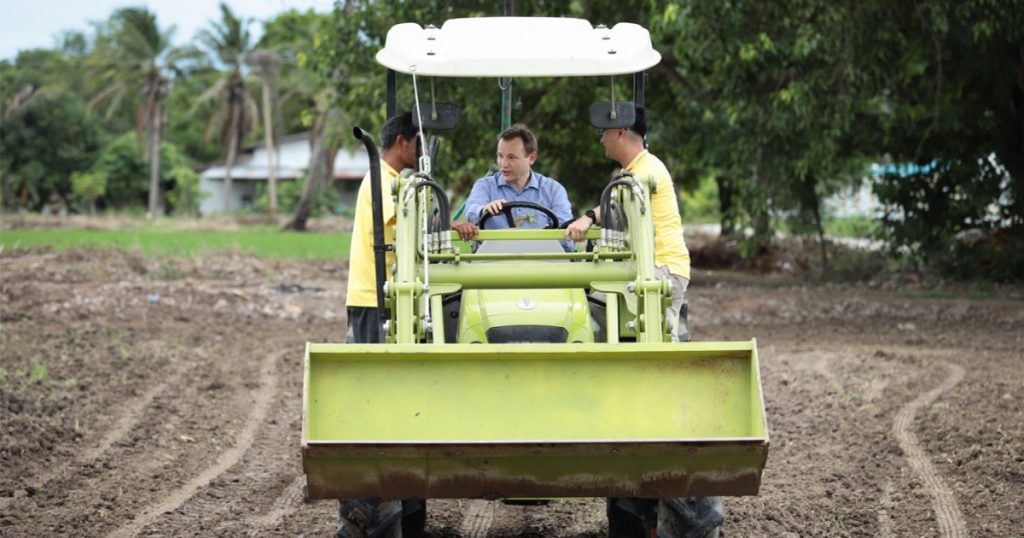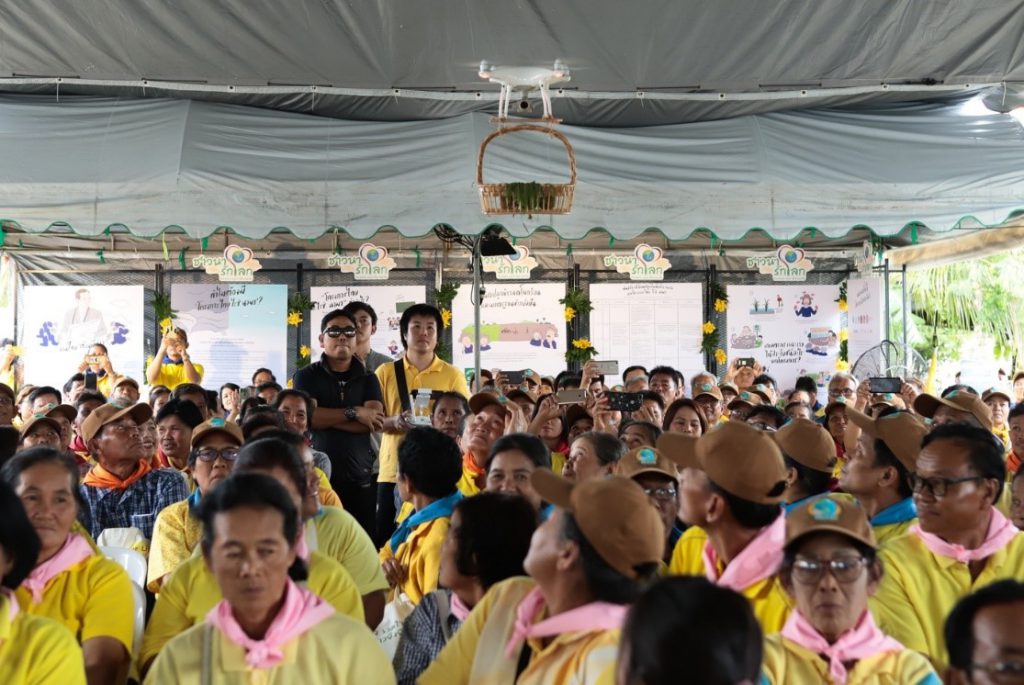More than 300 local farmers gathered last Friday at Bann Hua Mai Sung community rice center in central Thailand to gain more experience and knowledge in earth-friendly farming practices.
During the opening ceremony of a joint public-private project called: Thai Rice NAMA (Nationally Appropriate Mitigation Actions) in Suphan Buri province, Doojduan Sasanavin, Deputy Permanent Secretary of the Minister of Agriculture and Cooperatives stressed that improved farming practices can ease the impact of climate change on the farming sector.
“The project aims to work with 100,000 local rice farmer households in six provinces, including Chai Nat, Ang Thong, Pathum Thani, Sing Buri, Ayutthaya and Suphan Buri to enable the shift towards low-carbon rice farming,” Ms. Doojduan said, adding that the project is expected to reduce 1.73 million metric tonnes of carbon dioxide equivalent.
The land-leveling, alternative wetting and drying, site-specific nutrient management, and straw and stubble management are the four techniques that the project promotes among the local farmers.

(Photo credit: GIZ Thailand)
As a result, farmers will be able to enjoy the benefits such as higher crop yields and reduced farming costs,” Ms. Doojduan told hundreds of local farmers.
The flooded rice paddies are known to be one of the major contributors to climate change by releasing vast amounts of methane emissions, which have a global warming potential 28 times higher than carbon dioxide.
German Ambassador to Thailand Georg Schmidt put special emphasis on a close cooperation to promote the concept of sustainability among the people.
“When it comes to climate change, we are all in the same boat. Its adverse implications affect people around the world. Farmers are often among the first ones concerned. But at the same time, they can make a meaningful contribution to tackle climate change,” Mr. Schmidt said.
The multi-donor Nationally Appropriate Mitigation Actions (NAMA) facility board approved the project in July 2018 with joint efforts of Ministry of Agriculture and Cooperatives with its partnering government agencies and private sector. The Deutsche Gesellschaft für Internationale Zusammenarbeit (GIZ) GmbH, the German federal enterprise supporting sustainable development worldwide, is acting as a NAMA support organization.
The NAMA Facility provided financial support totaling about 530 million baht (14.9 million euros) to make the project happen.
Thai Rice NAMA Project will remain in effect until 2023.





